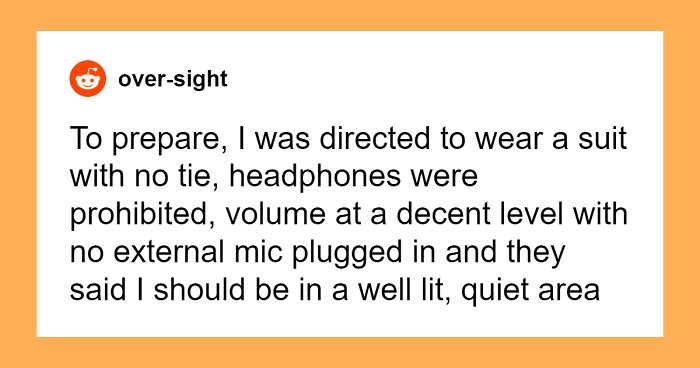
AI Job Interview Leaves Applicant Reeling: “This Is What Interviewing Has Become”
Interview With AuthorWith the rise and spread of artificial intelligence technology, we’re starting to see some major shifts in the job market. Some companies are embracing AI tools to optimize workflows and improve efficiency.
Naturally, this has many workers worried—especially those attending job interviews where they’re evaluated not by living, breathing human beings but by AI programs. One job applicant, redditor u/over-sight, shared their dystopian and degrading AI interview experience with the r/antiwork online community. Scroll down for the full story, in their own words.
Bored Panda got in touch with the author of the viral post, u/over-sight, for comment, and they were kind enough to answer our questions about AI interviews and the potential issues with this technology. You’ll find our interview with them below.
In this day and age, some companies rely on AI tools to conduct some of their interviews
Image credits: August de Richelieu (not the actual photo)
One job applicant shared their bizarre experience participating in one such interview
Image credits: ThisIsEngineering (not the actual photo)
Image source: over-sight
Companies that prioritize short-term cost-cutting might end up creating larger negative effects in the long run
Image credits: fauxels (not the actual photo)
We were interested to hear about the OP’s first reaction when they learned that they’d have to do an AI interview. “I previously recorded video responses for other companies, so I assumed this might be similar,” u/over-sight told Bored Panda.
“But when I was told a computer system would assess my responses, I knew that I would have to behave like a robot in order to satisfy the system’s requirements. I was disgusted but not surprised. It sucked and I hated doing it, but I’m desperate for work, so I felt like I had no choice.
According to the author, companies choose to use AI tools because it’s simply the faster and cheaper alternative. “Companies use AI because it’s faster and cheaper. They don’t want to pay more for a human to schedule an interview and take the time to evaluate a candidate,” u/over-sight explained.
“They may assume that AI can provide greater insight than a human, but just as Applicant Tracking Systems use algorithms to investigate and scrutinize resumes, HireVue investigates and scrutinizes YOU: the words you speak, your tone, your facial expression, and where you look, which is unnatural and unethical.”
There are further concerns to keep in mind. “Let’s not overlook the possibility that my words, behavior, and likeness could be saved and studied by the AI and the company. It’s learning how to be more human by examining me. Also, I imagine this information could be valuable enough to monetize. The businesses are the ones that benefit from all this, not the individual contributors. I may get a job, but I’ve become less human than human by allowing the replicants to run amok,” u/over-sight said.
However, just because something is fast and cheap, it doesn’t mean that the results will necessarily be good. The author compared this to eating fast food which gives you “temporary satisfaction with long-term detrimental effects.”
“Can we trust the employer that uses an impersonal computer system that evaluates and classifies people?”
Image credits: Andrea Piacquadio (not the actual photo)
Bored Panda was curious what advice u/over-sight would give someone who’s completely new to the job market and has no experience with job interviews whatsoever. From their perspective, everyone’s situation is unique, so it’s difficult to give people specific recommendations. In short, it all depends on every individual’s particular situation.
“I’ve been working since 1996 and had many interviews, all led by humans, which is my preference,” the author of the post opened up.
“Most times, a person will get an interview because the employer believes you have the necessary skills, but they need to determine if they like you personally. To be blunt, the interviewer is looking for someone much like themselves. They need someone who will make their lives easier by being proactive, resourceful, and responsible. Also, they want a like-minded individual so work seems like less of a grind. People would rather choose a trustworthy team member,” u/over-sight told Bored Panda.
They stressed the fact that trust is a two-way street. “Can we trust the employer that uses an impersonal computer system that evaluates and classifies people? A system that directs applicants to reduce their natural human characteristics in order to attain a passing score according to HAL 9000’s terms & conditions?” they mused.
The technology used in these interviews is potentially problematic
According to the author of the viral post, they were interviewed by HireVue. It’s a US-based company that provides AI and human resource management services. Originally, the business was founded all the way back in 2004. These days, HireVue allows its clients to conduct digital interviews where the candidates interact with a computer, not a real person.
Some journalists like Katherine Reynolds Lewis, from Fortune, have previously described the use of AI technology in interviews as a “potentially terrifying innovation.”
Meanwhile, Kevin Feloni mentioned in a piece on Business Insider that “the AI learns from the employee pool hiring managers choose to feed it. It can then be customized to remove certain biases, such as vocal tics, but that is also dependent on human judgment.”
Drew Harwell, from The Washington Post, noted that the tech used by HireVue was “pervasive in some industries,” acts as “a powerful gatekeeper for some of America’s most prominent employers,” and was “reshaping how companies assess their workforce.”
A representative on behalf of HireVue explained to Bored Panda that the use of headphones is not prohibited. What’s more, they noted that HireVue’s AI only scores what is said by the candidate.
They further clarified that HireVue’s AI does not use any visual analysis, i.e. they do not assess or try to interpret the candidate’s facial expressions, body language, emotions, or their background and surroundings.
According to an article on HireVue’s blog, they have “stopped using video inputs in new models early in 2020, and going forward we will also eliminate speech inputs.”
They continue: “Speech inputs include things like variation in tone or pauses. Our internal research showed that these were not adding much additional predictive value to our assessments. As a result, non-language inputs will not be in new assessment models and are being removed from older models as they come up for review.”
This new job interview format can put off some genuinely good candidates
Image credits: cottonbro studio (not the actual photo)
In short, the way that potential workers prove that they’re qualified, capable, and fit a company’s values is changing with the rise and spread of one-way video and AI interviews. It’s bound to cause a lot of stress for many applicants.
For one, you might feel anxious about not having an actual person to talk to, and you might do poorly when answering the questions that are the meat and potatoes of the actual interview.
Even if you’re perfect for that particular position, you might not make it to the next round of (hopefully, in-person) interviews due to the unusual format of the interview.
The upside, at least for businesses, is that the hiring process is smoother and cheaper. The interviews can take place at any time and in any part of the world zone. This can be great for some applicants who might not have the luxury of doing an interview when it would suit the recruiters.
Meanwhile, the recruiters in charge of reviewing the interviews can analyze them whenever it suits them. This is especially important for international corporations that hire many employees remotely from all around the globe. The reality is that these sorts of interviews are bound to get more popular over time.
On top of that, the technology can help companies filter out candidates who might not be a good fit (and would otherwise waste their staff’s time). That being said, some employees might feel that there’s potential for discrimination or that they’re not being treated with the respect that they deserve. After all, when a company representative takes the time to personally interview you, it shows that they’re serious about evaluating you.
If the recruiters feel that the applicant is a good fit after reviewing their one-way or AI interview, they often then schedule a follow-up interview, whether remotely or in person. It probably wouldn’t be a good idea to hire someone based solely on their performance in an AI interview. At the same time, rejecting someone simply because they didn’t meet the arbitrary thresholds set by some AI tool is also potentially iffy.
What are your thoughts about AI interviews, dear Pandas? Have you ever done any one-way or AI interviews personally? What advice would you give someone who’s completely new to job interviews in the first place? If you have a moment, share your thoughts in the comments. We’d love to hear your take on all of this.
The author revealed some more context about their experience
Here’s what some internet users had to say about the rise of AI interviews
Poll Question
Thanks! Check out the results:
If a company required me to do an AI interview, I would send them a message politely declining it and telling them that, if they really wanted me, the would have a LIVE ACTUAL HUMAN BEING do the interview. AI doesn't have intuition or "gut feelings" the way people do.
AI does not hate gut feelings *for now* It is as exciting as it is ominous.
Load More Replies...I would struggle with the requirements as I don't have a laptop, I have a desktop and therefore it has no built in mic or webcam - I do have them but they are external devices. It's discriminating against disabilities and different types of tech
If a company required me to do an AI interview, I would send them a message politely declining it and telling them that, if they really wanted me, the would have a LIVE ACTUAL HUMAN BEING do the interview. AI doesn't have intuition or "gut feelings" the way people do.
AI does not hate gut feelings *for now* It is as exciting as it is ominous.
Load More Replies...I would struggle with the requirements as I don't have a laptop, I have a desktop and therefore it has no built in mic or webcam - I do have them but they are external devices. It's discriminating against disabilities and different types of tech

 Dark Mode
Dark Mode 

 No fees, cancel anytime
No fees, cancel anytime 






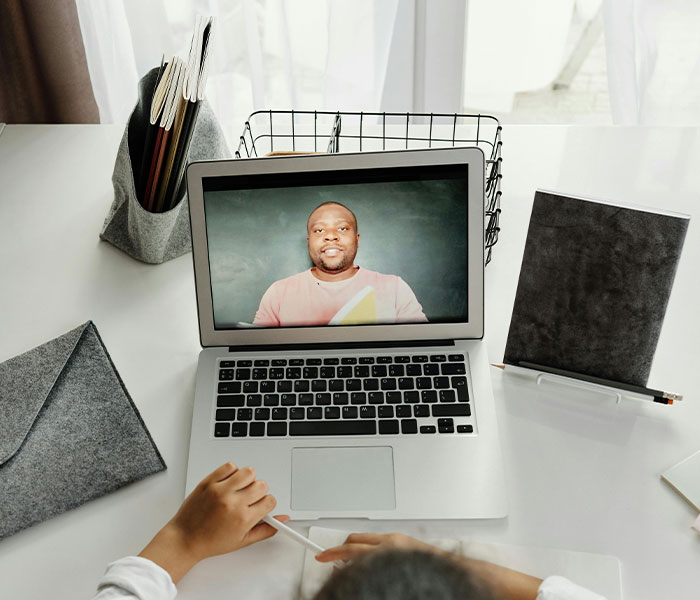
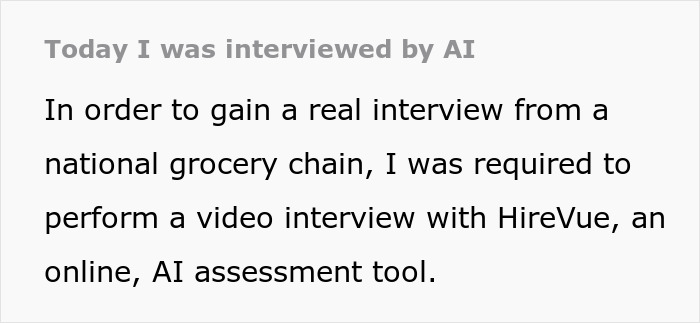
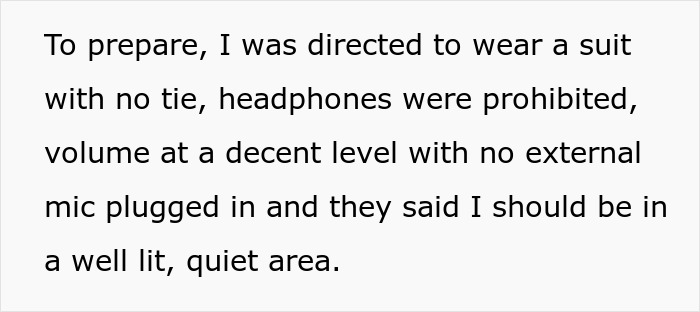
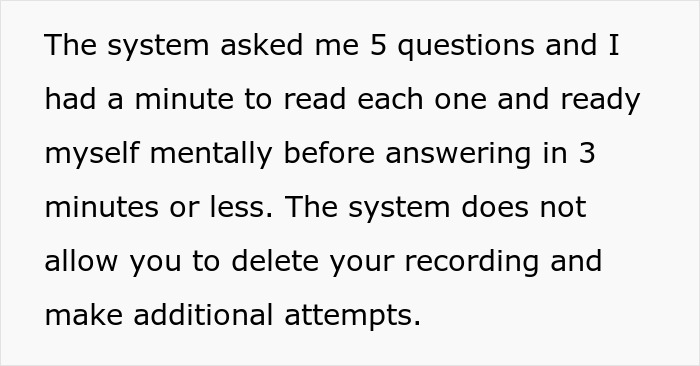
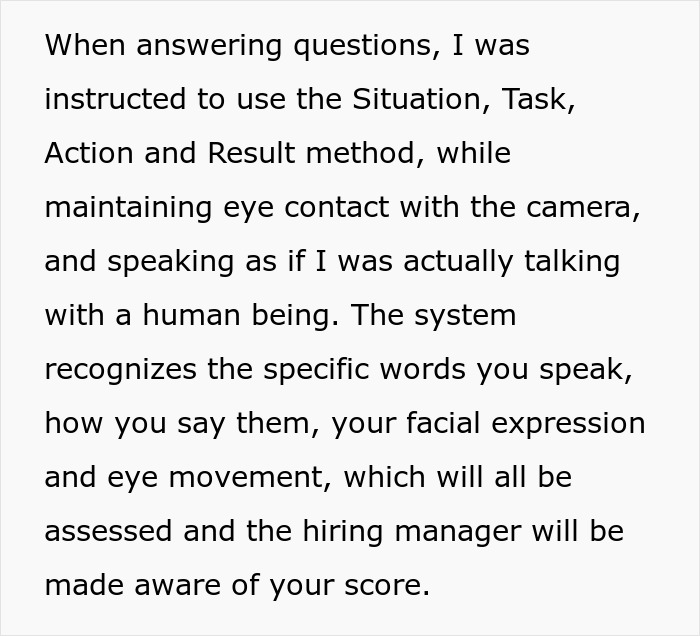
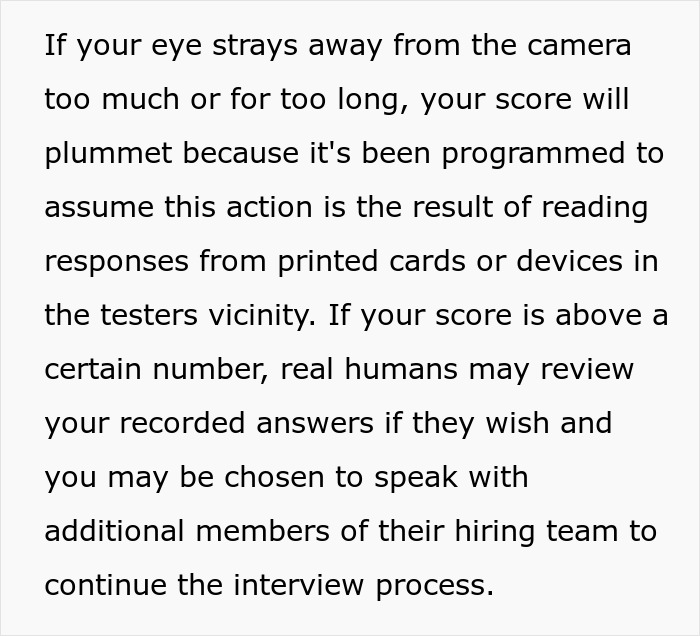
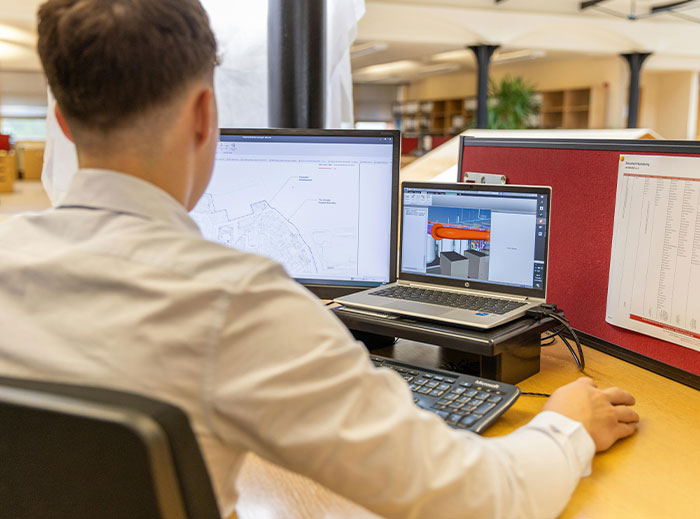
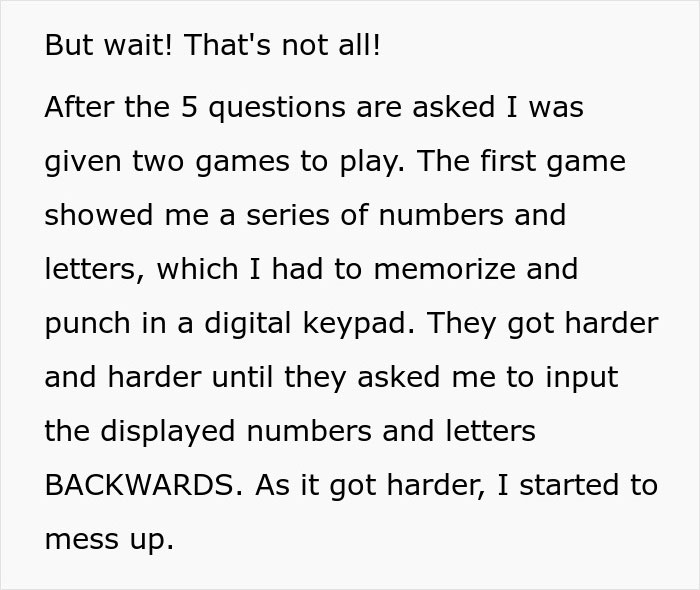
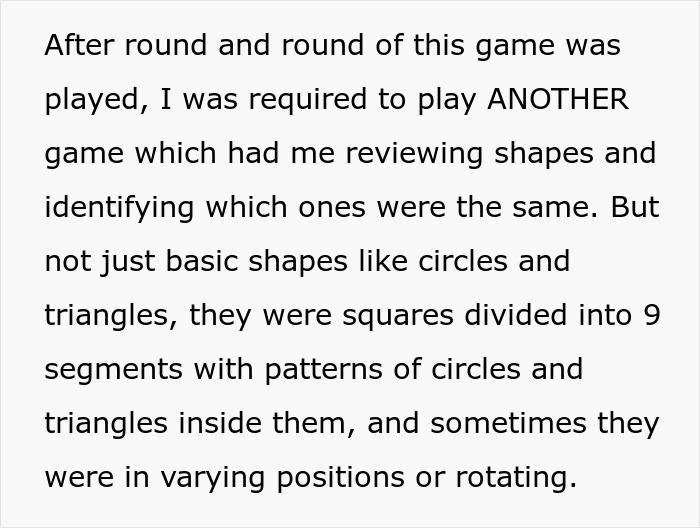
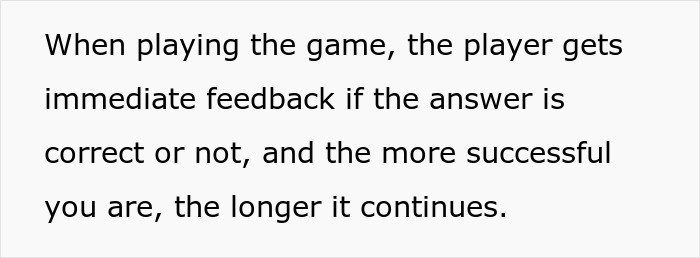



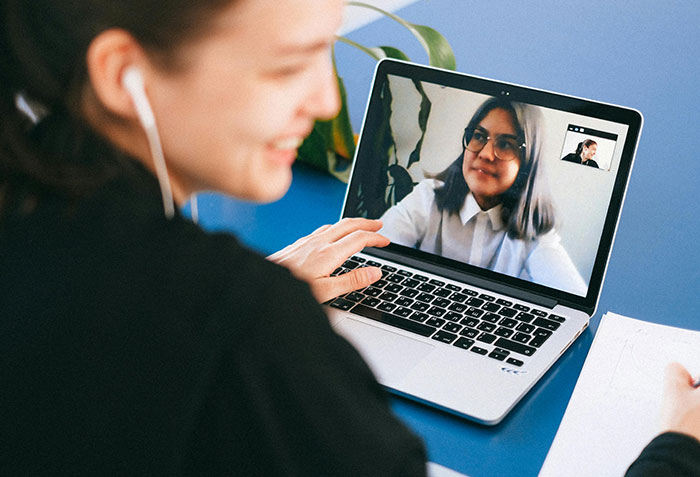

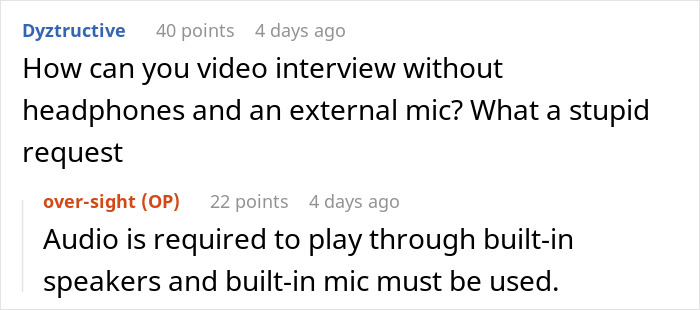
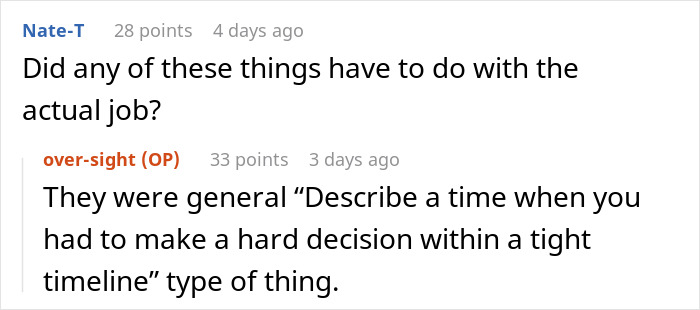






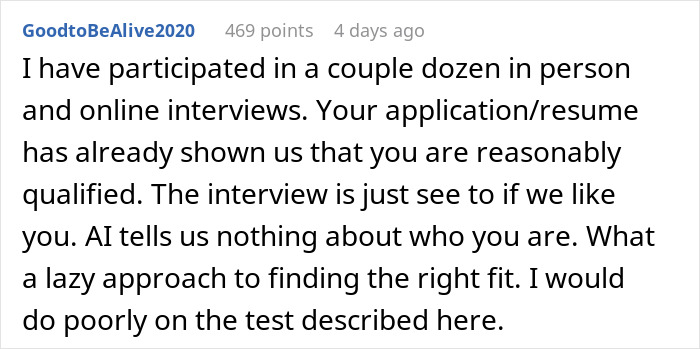


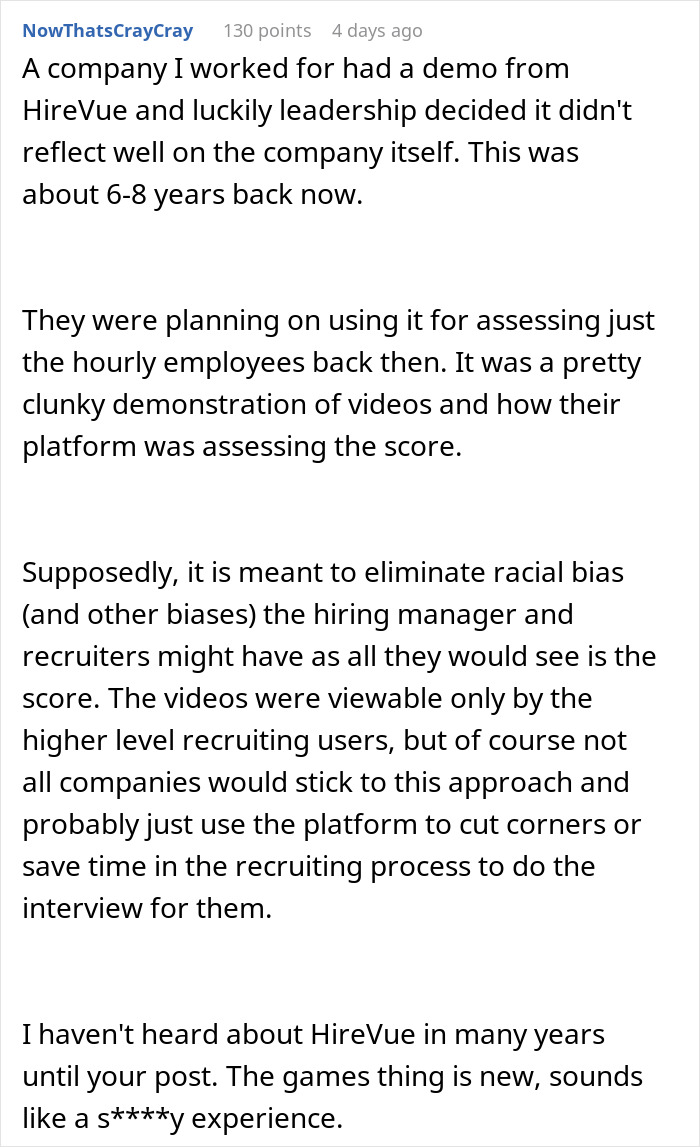

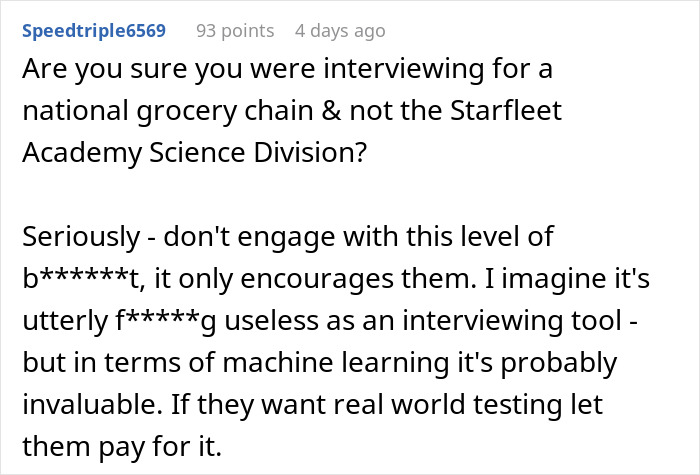


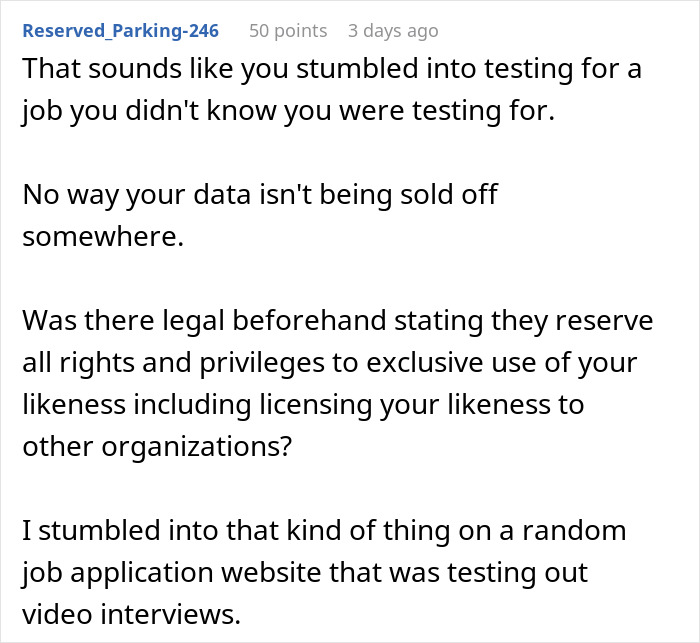







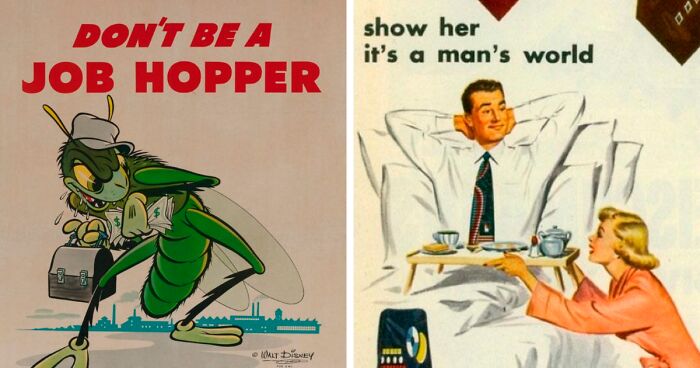



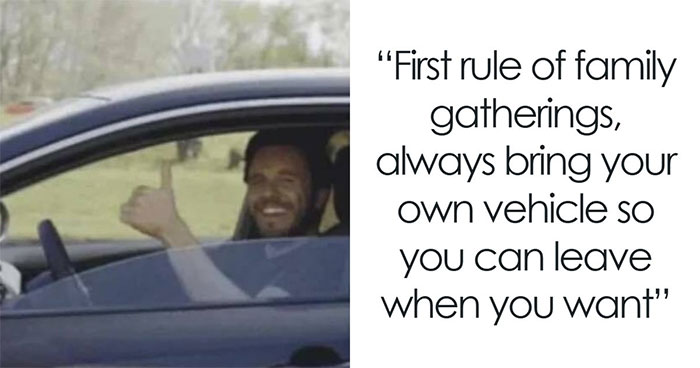
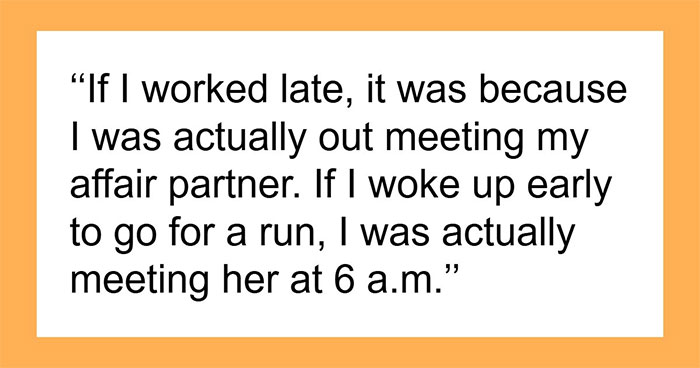



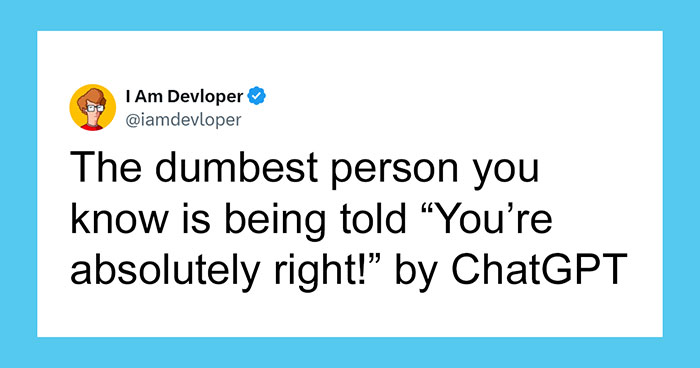

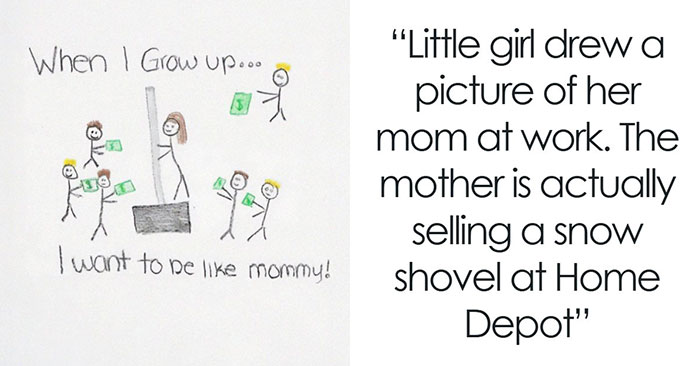

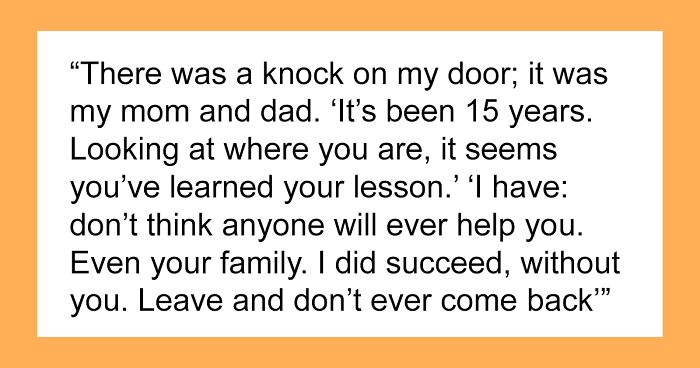












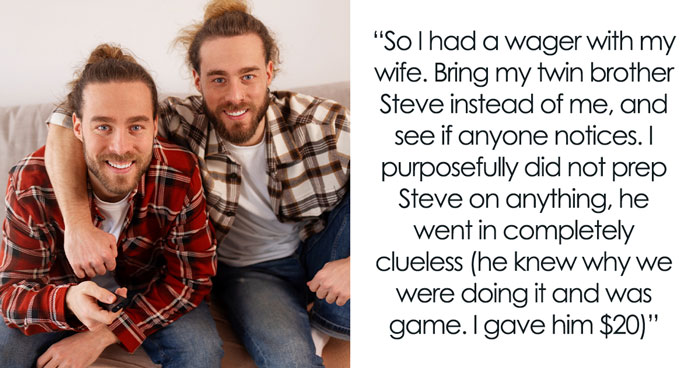













17
34